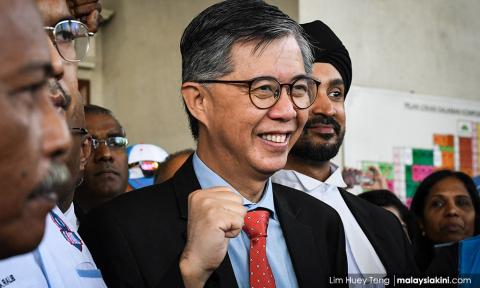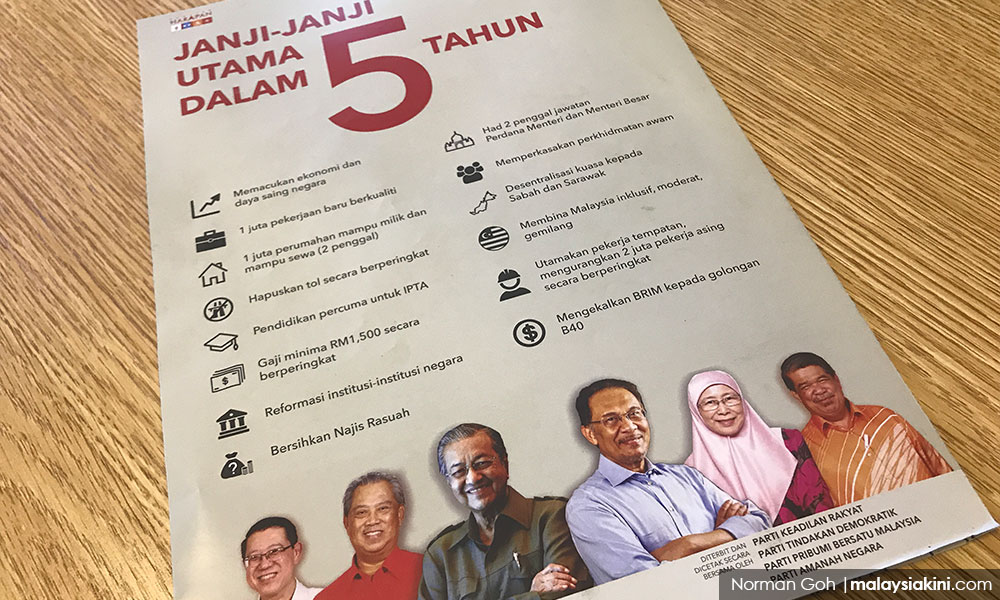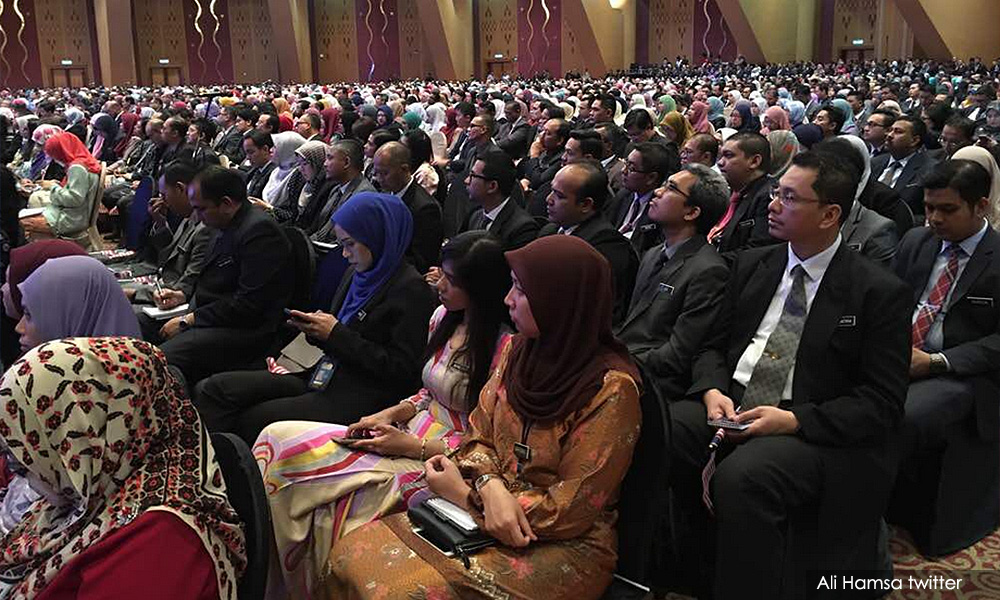
Works Minister Baru Bian has just appointed PKR vice-president Tian Chua as his “special adviser”. The questions that come to mind are:
- Is Tian working on a voluntary basis in the way that Tony Pua has claimed he is working as a “personal assistant” to the Finance Minister?
- If not and taxpayers are paying for his post, how was this appointment made? Was this post advertised or is appointing someone to this post a prerogative of the minister’s?
- What qualifications/expertise does Tian have to be “special adviser” or even assistant to this particular ministry since his CV says he has degrees in Agricultural Science, History and Philosophy of Science and labour studies?
- If taxpayers are paying for the post of “special adviser”, does it mean that every other minister in the cabinet has the privilege of employing their party leaders into these positions?
Now, if these are all salaried appointments, they will add up to a rather hefty bill for taxpayers to foot! We need the prime minister to clarify this question because he has been talking rather a lot about the need to make the civil service leaner and trimming the national debt of RM1 trillion.
Pakatan has reneged on outlawing patronage
The Pakatan Harapan manifesto in GE14 decried the patronage practised by BN in appointing politicians and their partisans in state institutions because this is seen as a facet of corruption in our institutions. Clearly, if we don’t, we will find our country forever doomed to an age of mediocrity.

Since Harapan came to power on May 9 last year, it has reneged on this most important of promises and we have seen more and more cases of political patronage into state institutions. Political patronage involves the appointment or hiring of a person to a government post on the basis of partisan loyalty. Such appointments at the national, state, and local levels of government are used to reward the people – including NGO activists – who help them win and maintain office and to build strength within their respective parties.
It is time for all Malaysians who had hoped for a “new Malaysia” to call for a halt to this “moneyless form of corruption” and to restore merit-based criteria for entry into state institutions. Transparency International says ‘patronage’ is insidious where the state appoints friends, relatives, political supporters into public jobs which, without the official’s influence, they would not obtain. Thus, without hiring/appointing personnel on the basis of merit, such placements ensure that society as a whole suffers as Malaysia has suffered all these years.
Today, the prime minister controls Malaysia’s leading investment arm and sovereign wealth fund, Khazanah Nasional, while Economic Affairs Minister Azmin Ali controls numerous GLCs that were once controlled by the Finance Ministry. Harapan had pledged in its GE14 manifesto that politicians would not be appointed as directors of government enterprises. Furthermore, at the Sept 1, 2018 Congress on the ‘Future of Bumiputeras and the Nation’, Mahathir stressed the need to reinstitute the practice of “selective patronage”, targeting bumiputeras.
Cronyism is the practice of partiality in awarding jobs and other advantages to friends, family relatives or trusted supporters regardless of their qualifications. This includes doing favours for partisan organisations, giving desirable ambassadorships to exotic places.

The 1997 World Development Report emphasised the important link between appointments based on merit and enhanced bureaucratic capability. The report had delved into the practice of political appointments in government departments and stressed merit-based appointment as an important plank in any effective anti-corruption strategy.
Merit can be defined as the 'appointment of the best person for any given job’. It is well-known that in any organisation, “getting the right people on the bus” via excellent selection methods provides the basis for high performing teams and the viability of the organisation as a whole. A visible merit-based appointment system, where breaches of good practice are self-evident, clearly makes it easier for citizens to hold the government to account in this regard. We thus need a politically neutral, merit-based career civil service.
So, we hope the prime minister and minister will respond to these questions regarding “special advisers” for the respective ministers and whether they are working on a voluntary basis or paid for by Malaysian taxpayers; whether these posts are justified in the first place since the PM has stressed the need for a leaner civil service and the dire state of the nation’s financial position. Last but not least, whether these posts are based on meritocracy or on cronyism since only banana republics practise cronyism.
KUA KIA SOONG is Suaram's adviser. - Mkini



No comments:
Post a Comment
Note: Only a member of this blog may post a comment.